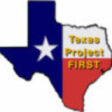“If you don’t know where you’re going, any road will get you there.”
Person-Centered Planning Can Create a Destination…
And Find the Path(s) That Can Lead You/Your Child There
Person-centered planning is a broad term used to describe an intentional, deliberate approach to planning for and with the person with a disability, rather than waiting for and fearing the future. It is an ongoing process; can any of us truly plan the rest of our lives in one sitting? Because the process is fluid and continuous, it allows for changes in life’s circumstances and the needs of the individual. Those involved in the planning are people who know and care about the individual. They ensure that the plan accurately reflects the needs and desires of the individual. This results in a plan that truly works for that individual.
The idea of person-centered planning has evolved over the last 20 years, resulting in a variety of methods. Some of the more recognizable include Personal Futures Planning, MAPS, PATH, and Essential Lifestyle Planning. Different approaches were designed to deal with different issues (challenging behavior, the development of relationships, or gaining more of what matters to the person with the disability), but they all share a common set of beliefs:
- The person at the focus of planning, and those who love the person, are the primary authorities on the person\’s life direction. The essential questions are: \”Who is this person?\” and \”What community opportunities will enable this person to pursue his or her interests in a positive way?\”
- The purpose of person centered planning is learning through shared action.
- Person centered planning aims to change common patterns of community life. Person centered planning stimulates community hospitality and enlists community members in assisting focus people to define and work toward a desirable future.
- Person centered planning requires collaborative action and challenges practices that separate people and perpetuate controlling relationships.
- Honest person centered planning can only come from respect for the dignity and completeness of the focus person.
- Assisting people to define and pursue a desirable future tests one\’s clarity, commitment and courage.
If thinking about the future for your child is frightening or overwhelming, you’re not alone. The future concerns most parents, even those who don’t live with disability. Person-centered planning can move you (and your child) from the paralysis of fear to an action-oriented plan with hopes and dreams for the future.
Texas Resources:
Texas Health & Human Services (HHS) – Person-Centered Planning for People in Waiver Programs
The Texas Center for Disability Studies at the University of Texas has a collaborative initiative with the Center on Disability and Development at Texas A&M University called the Institute on Person-Centered Practices. The ICPC provides training opportunities in person-centered practices for people with disabilities, families and professionals. ICPC trainers are certified by The Learning Community for Person Centered Practices.
Region 13 ESC – Thinking About the Future When We\’re Worried About the Present (video)
More Resources:
Allen, Shae & Associates – A Resource List on Person-Centered Planning
Common Sense Tools: MAPS & CIRCLES for Inclusive Education – By Marsha Forest & Jack Pearpoint
Cornell University – Person Centered Planning Education Site
Finding a Way to Everyday Lives: The Contribution of Person-Centered Planning (pdf) – By John O\’Brien & Herbert Lovett
Increasing Person-Centered Thinking: Improving the Quality of Person-Centered Planning (pdf) – By Angela Novak Amado, Ph.D. and Marijo McBride, M.Ed.
MAPs and PATHs – A Family Perspective – By Bryn and Clark Fortune
Minnesota Governor\’s Council on Developmental Disabilities
- It’s Never Too Early, It’s Never Too Late – A Book About Personal Futures Planning (pdf)
- Making Futures Happen (PDF)
- It \’s My Choice (pdf)
National Center on Secondary Education & Transition (NCSET) – Person-Centered Planning: A Tool for Transition
Syracuse University/Center on Human Policy – On ChoiceThe Origins of Person-Centered Planning (PDF) – By Connie Lyle O’Brien and John O’Brien UMKC Institute for Human Development – Charting The Life Course™: Tools for families/individuals to develop a vision for a good life
Transition Coalition – Planning for the Future (A Workbook to Help Young Adults with Disabilities, Their Families, and Professionals to Plan for Living, Working and Participating in the Community)




